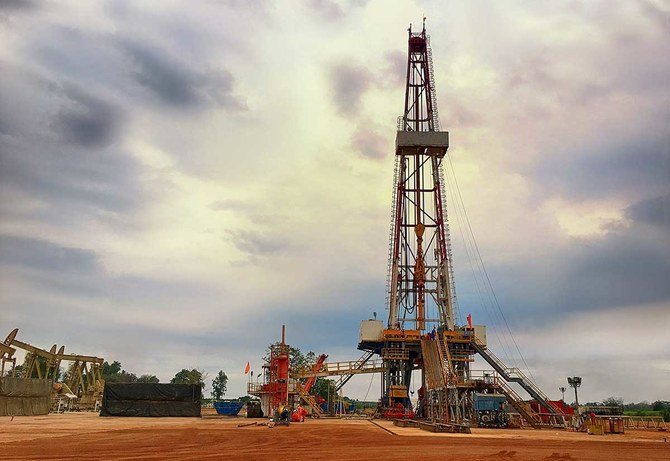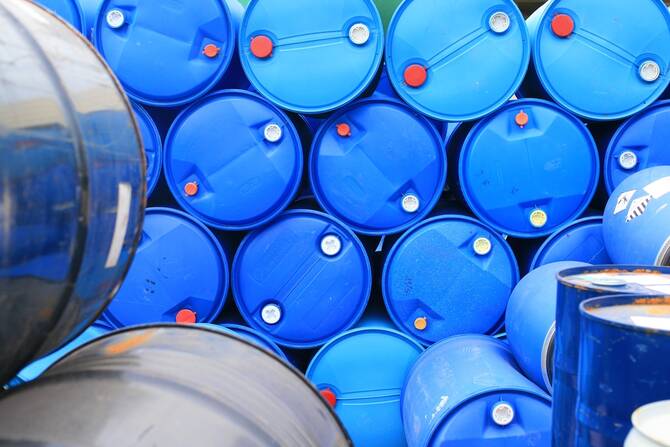Shatha AlMasoudi
Oil prices fell on Thursday, extending losses after official figures showed an unexpected rise in inventories in the United States although prices seem to have stabilized following a recent run of gains.
Brent crude was down 11 cents at $78.53 a barrel by 0137 GMT, after falling 0.6 percent on Wednesday. U.S. oil fell 5 cents to $74.78 a barrel, having also declined by 0.6 percent in the previous session.
OPEC+ is likely to stick to an existing deal to add 400,000 barrels per day to its output for November when it meets next week, sources said, despite oil hitting a three-year high above $80 a barrel and pressure from consumers for more supply.
The Organization of the Petroleum Exporting Countries and allies led by Russia agreed in July to increase production by 400,000 bpd each month to phase out 5.8 million bpd in cuts. It also agreed to assess the deal in December.
“So far we will keep the plan to increase by 400,000 bpd,” one of the sources said.
OPEC+ agreed in September to continue with its existing plans for an October output rise.
The OPEC+ Joint Technical Committee, which met on Wednesday, sees the oil market in a 1.4 million bpd surplus next year under its base scenario, slightly below the previous forecast of 1.6 million bpd, a presentation seen by Reuters showed.
In opening remarks to the JTC, OPEC Secretary-General Mohammad Barkindo said the current OPEC+ deal is helping to keep the oil market balanced.
Oil prices have been charging higher as economies recover from pandemic lockdowns and fuel demand picks up, while some producing countries have seen supply disruptions.
U.S. oil, gasoline and distillate stockpiles rose last week, according to the U.S. Energy Department. U.S. output rose to 11.1 million barrels per day, roughly in line with where production was before Hurricane Ida hit about a month ago.
Production in the United States has failed to recapture the levels seen at the end of 2019, when output rose to almost 13 million bpd. Shale output has been slow to rebound, tightening global supply as OPEC has been reluctant to raise its quotas.
“Production is coming back but is not where it needs to be,” said Phil Flynn, trader at Price Futures Group.
Carbon footprint
The Abu Dhabi National Energy Co. has hired advisers to sell its entire oil and gas producing assets in Canada as part of a drive to reduce the company’s carbon footprint, sources told Reuters.
The assets could fetch as much as $1.18 billion, according to IHS Markit analysts.






















